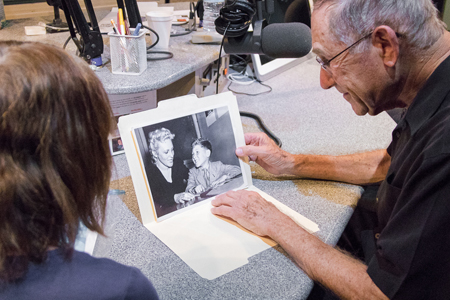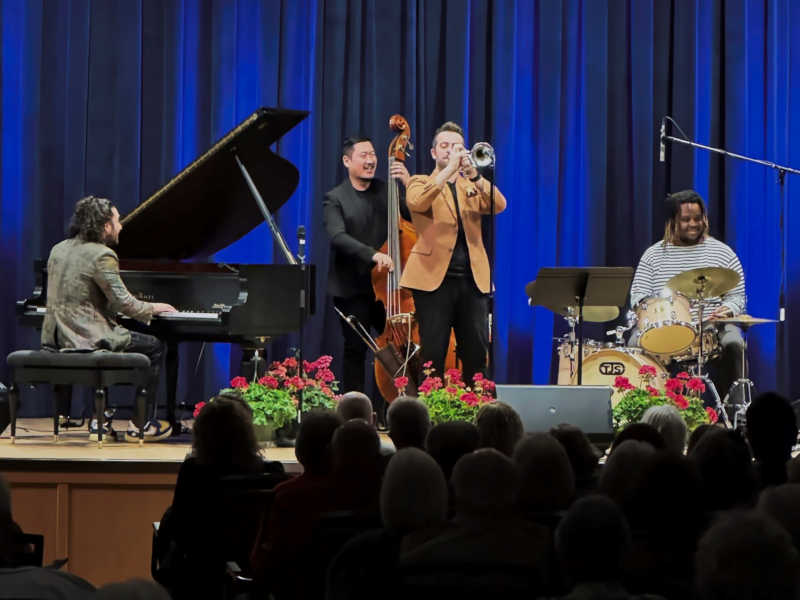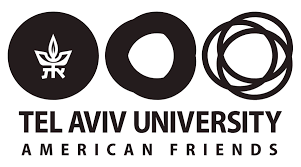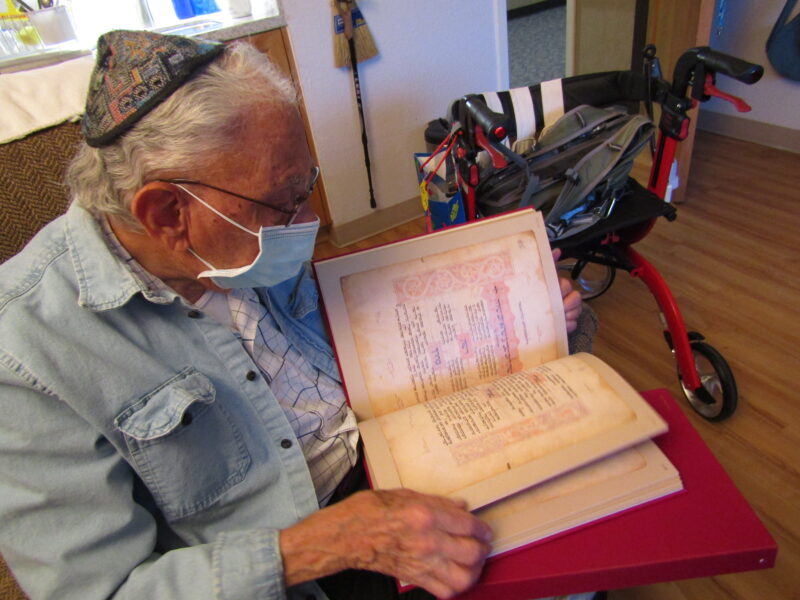Pictured above: Dr. Michael Markson shows Judy Stern Bartelstone a photograph of himself as a child with his mother, Clara Sauberblatt. Photo by Jason Robey
Sun Sounds of Arizona (sunsounds.org) will be celebrating its 40th anniversary in November. The service provides audio access 24 hours a day, seven days a week, and is available to anyone who cannot read print due to any disability. Their content includes daily newspapers, current magazines and a variety of book titles.
“People can receive Sun Sounds through special radios; people can go to our website and stream us, or you can receive us on Alexa devices and iTunes Radio,” says Andrea Pasquale, Sun Sounds of Arizona executive director. “The service and the radios we can supply to people free of charge. It’s for anyone who cannot read or hold print material due to a disability.” These disabilities range from someone who is losing their sight due to macular degeneration or someone who can’t hold print material steady because of Parkinson’s or a stroke, or dyslexic.
About 80% of their listeners are age 60 or older.
Judy Stern Bartelstone has been a Sun Sounds volunteer for more than 11 years. In September of 2017, she did an interview with Holocaust survivor, Dr. Michael Markson who, with his mother, escaped Lithuania during the Nazi invasion.
“Dr. Markson has been a tennis partner of my husband’s for about five years. He’s a very quiet man, and we’ve never spoken more than a few words,” says Judy. “We went to dinner, and his wife asked me what I did, and I mentioned Sun Sounds. She asked me the qualifications, and for some reason, I said well, ‘language is very important,’ and Dr. Markson leaned forward and said, ‘Yes it is, I came from the Ukraine when I was 9 years old.’” Judy quickly did the math in her head and then asked him, “I don’t mean to be intrusive, but are you possibly a survivor?” and he replied, “Yes I am.”
When Judy heard his story, she asked him if he would be interested in doing an interview with her at Sun Sounds. Judy explained that the setting there was more of an intimate studio and with his wife, Anita’s, encouragement he agreed to the interview.
“It’s the only interview he’s ever done,” says Judy. “It’s the only interview he ever will do. I have learned that for some survivors, telling their story is not cathartic.”
The story’s heart is the relationship between a mother and her son. “Clara Sauberblatt was very young and beautiful, and her husband had already been killed. They were in the ghetto when she realized what was going on,” says Judy. “She took Michael out in a pushcart filled with vegetables to righteous gentiles at a farm where she had sold produce before. They said that they would take him in and she left him by a hole in the fence. He remembers saying, ‘I hate you; I never want to see you again,’ because he didn’t understand what was happening.” Michael believes he was between the age of 3 and 4.
Michael was eventually transferred to an orphanage, and Clara somehow managed to escape from the concentration camp with a friend. She never lost faith that she would get back. She returned to the farm, which was now empty, but someone directed her down the road to the orphanage.
“She bought warm rolls at the bakery and brought them to the orphanage, but Michael did not recognize her. All he knew was that a beautiful lady had brought rolls,” says Judy “He said he remembered having a roll in each hand and thinking, ‘I have two rolls.’ She recognized him and told him, ‘I’m your mother.’ To this day, bread or rolls are gourmet food to him.”
He was 7 years old when she took him from the orphanage. Clara worked for two more years and then, with help from HIAS and two uncles living in the United States, arrived in New York with Michael aboard the SS Ernie Pyle.
“I asked him if he was afraid to travel on this huge ship and he said, ‘Why would I be afraid, I had my mother, I had food (you could ask for seconds) and they played a film, ‘Stars and Stripes,’ so I wasn’t afraid,’ ” says Judy. Judy remembered thinking food, family and film was all he needed.
Andrea knew that no one else would ever get to interview Dr. Markson, so she encouraged Judy to share the interview. “I called several different places, including the library at Yale – they do their own interviews – I called HIAS, and then I thought, ‘Why not contact the museum in Washington,’ and I did,” says Judy.
She contacted James Gilmore, archives specialist at the United States Holocaust Memorial Museum and he requested that she send him a recording of the interview.
Several weeks later, James contacted Judy. He told her that they would be giving it a number and cataloging it into their collection. “Michael was delighted – as long as he did not have to do anything (meaning another interview) again,” says Judy. He went on to tell her that he was glad he told his story.
“At one point in my interview I said that history is important because we don’t want history to repeat itself,” says Judy, but she admits to being a bit taken aback by Michael’s response, “But it will.”
To hear the interview, visit ushmm.org and search “Oral history with Dr. Michael Markson” or click here.






